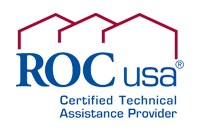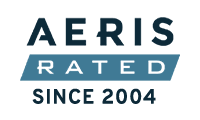
What to do with those old business files
By Kelli Cicirelli
File, discard, or shred? A guide to what ROCs should do with their business files.
January is National Get Organized Month, and with the New Year upon us, stores are touting everything you need to organize, get tidy, store things neatly, and discard all the excesses.
It is a great time of year to take inventory and figure out what files and objects should stay, and which have overstayed their welcome. But what about the co-op’s business files? It is a common concern for boards of directors, and a question that ROC-NH gets on a regular basis: What should we do with all the records, files and … stuff?
 The Internal Revenue Service has a lot to say on the topic of record retention for corporations, and for good reason. If a business is audited, it risks being penalized if the records backing up its tax returns and financials are inadequate. On the other hand, a business can burst at the seams if all the paperwork isn’t managed properly.
The Internal Revenue Service has a lot to say on the topic of record retention for corporations, and for good reason. If a business is audited, it risks being penalized if the records backing up its tax returns and financials are inadequate. On the other hand, a business can burst at the seams if all the paperwork isn’t managed properly.
Let’s try to sort out some of the requirements for corporations (including co-ops).
Some important items need to be kept for the life of the corporation–plus seven years. These include historical documents, like the articles of incorporation, bylaws with all amendments and versions, board meeting and membership meeting minutes, and community rules with all amendments and versions.
Since a co-op’s tax returns are completed on an annual basis, many financial records that support those tax returns can be destroyed after three years. These include bank statements, invoices and receipts from vendors, budget reports, and even old tax returns.
Member/resident records should be maintained for two years beyond termination of residency. If someone applies for membership at the co-op and is denied, those records need to be stored for two years from the denial date.
In addition, the consumer authorization that applicants sign should be kept for five years, unless directed otherwise by the credit reporting agency. If your co-op obtains a credit report for any new applicant, that credit report should be shredded after a decision is made on their application.
The record retention chart in the Management Guide on myrocusa.org is a great tool to use when the get-organized bug hits you this month, or any other time. Register on the ROC USA site and take advantage of this and other super all-things-ROC resources.
Kelli Cicirelli is an Organizational Development Specialist for ROC-NH™.
ROC-NH™ is a program of the New Hampshire Community Loan Fund, Inc. and a ROC USA® Certified Technical Assistance Provider.
ROC-NH is a registered service mark of ROC USA, LLC.















